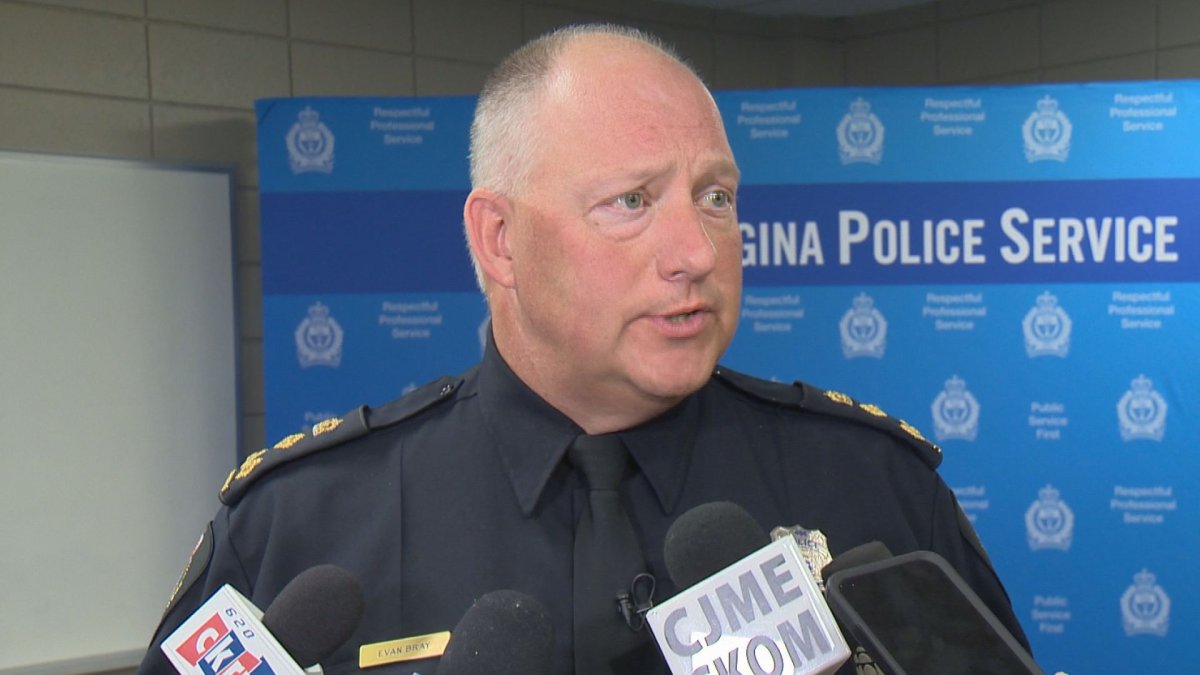Correction: In a previous version to this article, Global News accredited the 24-hour public health line to the Regina Police Service. In fact, the number is associated to the province and not police.

The Regina Police Service is encouraging people to use the 24-hour public health phone line to report people who are not obeying the province’s public health order during the COVID-19 pandemic.
“This is still a very busy time and an uncertain time in our city. Our police service is working diligently to help keep our community safe, and part of that has been digging into investigations of alleged breaches with regard to the public health order,” said Regina Police Chief Evan Bray in a video posted on Twitter, Wednesday.
“I do encourage you to have these conversations with family and friends on the important pieces of this lawful public health order.”
The government of Saskatchewan has issued several public health orders help control the transmission of COVID-19.
The orders include limiting public gatherings to 10 people or less, and those who returned from international travel must immediately self-isolate within 14 days from the date of their arrival back to Canada.
The current public health order can be read in its entirety here.
Those who want to report an alleged violation order can do so by calling 1 (855) 559-5502.
Bray says public health workers are leading the investigations.
Questions about COVID-19? Here are some things you need to know:
Health officials caution against all international travel. All international travellers returning to Saskatchewan are required to self-isolate for 14 days in case they develop symptoms and to prevent spreading the virus to others.
Symptoms can include fever, cough and difficulty breathing — very similar to a cold or flu. Some people can develop a more severe illness. People most at risk of this include older adults and people with severe chronic medical conditions like heart, lung or kidney disease. If you develop symptoms, contact public health authorities.
To prevent the virus from spreading, experts recommend frequent handwashing and coughing into your sleeve. They also recommend minimizing contact with others, staying home as much as possible and maintaining a distance of two metres from other people if you go out.
For full COVID-19 coverage from Global News, click here.
- ‘She gets to be 10’: Ontario child’s heart donated to girl the same age
- Bird flu risk to humans an ‘enormous concern,’ WHO says. Here’s what to know
- Shoppers faces proposed class action over claims company is ‘abusive’ to pharmacists
- Most Canadian youth visit dentists, but lack of insurance a barrier








Comments